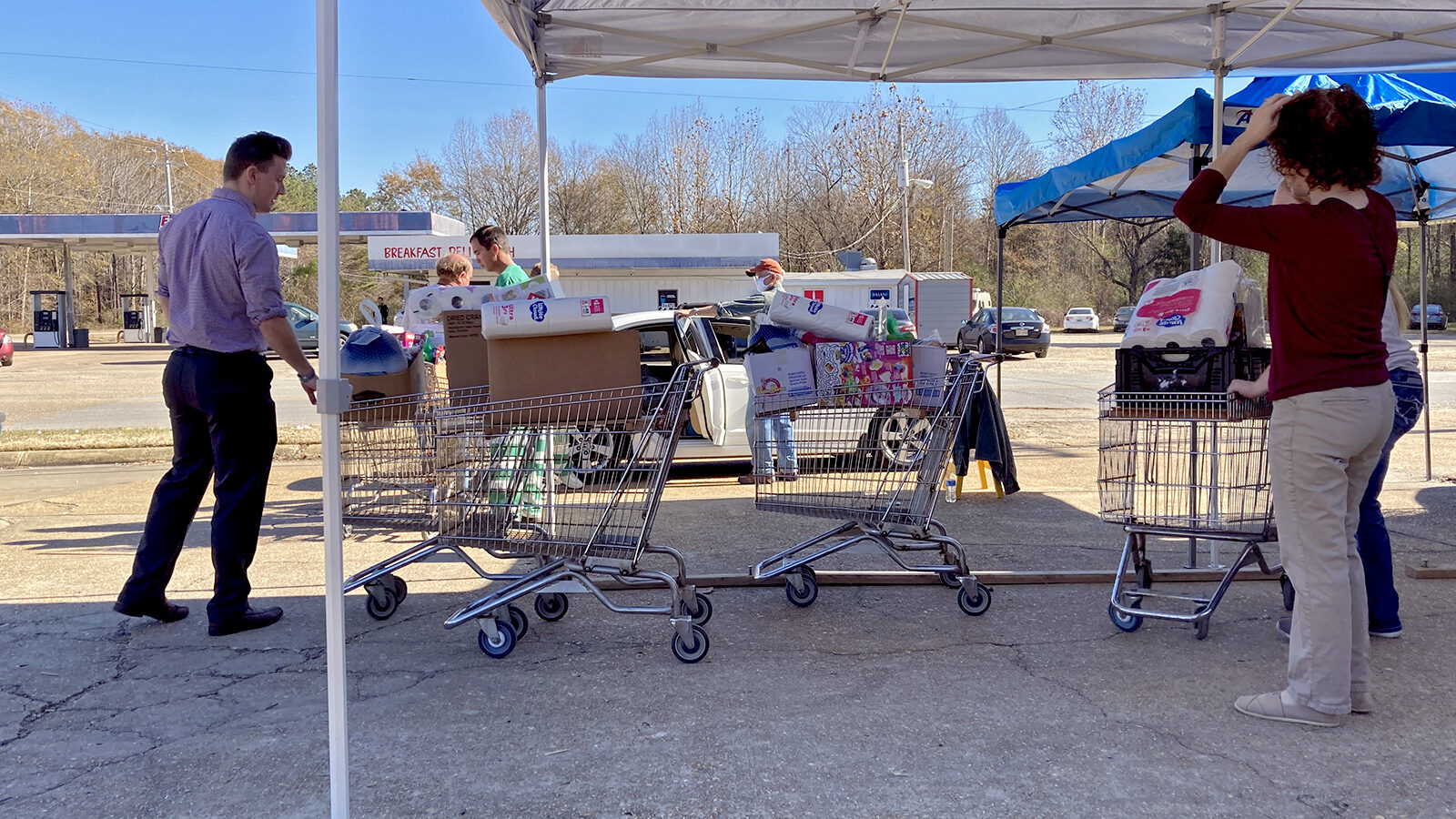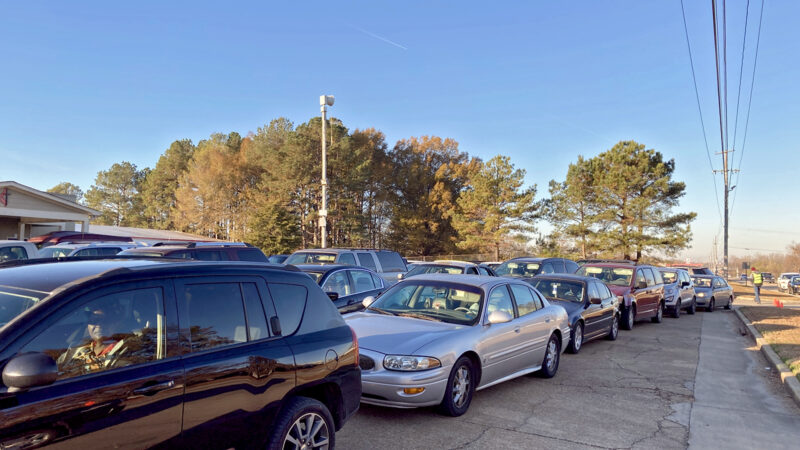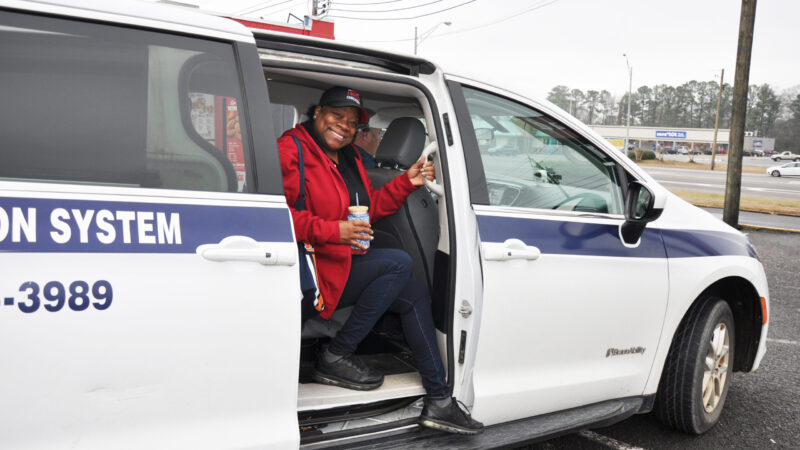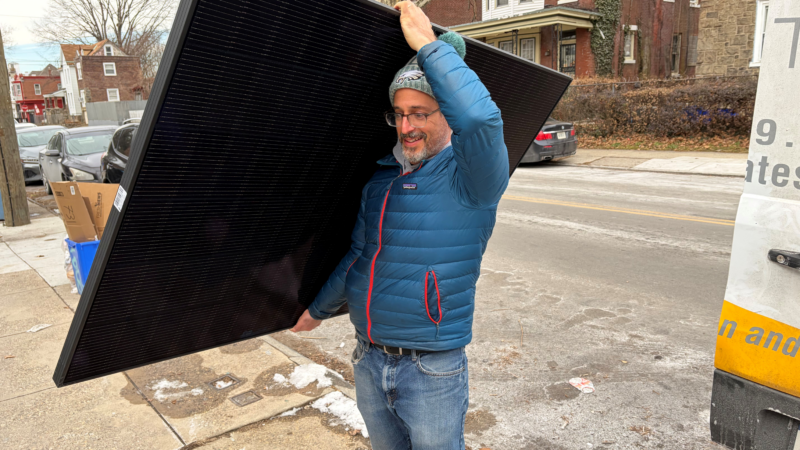How the social safety net has — and hasn’t — changed in 2021 in 5 charts
Mississippi residents wait in line in their cars to receive food and supplies at the Saint Luke’s Food Pantry in Tupelo, Dec. 2, 2021. Despite increases to the social safety net in 2021, Saint Luke’s would routinely see lines of cars in their parking lot spill out into the nearby streets full of families looking for help with food and supplies.
The social safety net went through some big changes in 2021 and not just through stimulus checks. This year saw big, permanent — or potentially permanent — changes.
The Supplemental Nutrition Assistance Program (SNAP) got a hike. The Child Tax Credit sent thousands of dollars to families. Mississippi increased how much cash assistance it offers low-income families through the Temporary Assistance for Needy Families (TANF) program.
Here are five charts showing how the social safety net has changed, the impact it’s had and how some programs still struggle to reach those that need it.
SNAP increase
SNAP, better known as food stamps, got a historic bump in benefits on October 1. The average participant got a 25% increase, or about $36.24.
This isn’t the first time that SNAP benefits have gone up. What makes this different is the increase in purchasing power.
Most previous updates related to inflation. But the 2018 Farm Bill authorized the United States Department of Agriculture to rethink how much people on SNAP should get. The result is the largest permanent increase in the history of the program.

Stephan Bisaha,Gulf States Newsroom
Volunteers at Saint Luke’s Food Pantry in Tupelo, Mississippi prepare shopping carts full of food and supplies to donate to families in need on Thursday, Dec. 2, 2021. This day, the food pantry would service 595 cars full of families.
TANF still troubled
TANF also saw an increase in Mississippi this year. States are allowed to run their own versions of the federal program, leading to a wide range of rules for each iteration of it, including how much is paid out.
Until this year, Mississippi held the title for stingiest TANF program, paying out $170 a month for a family of three with no other income. That changed in May, when state payments increased to $260 to that same family.
But that doesn’t mean much when less than one percent of Mississippians living below the poverty line actually receive TANF.
Experts blame Mississippi’s rigid restrictions for keeping people from applying — things like drug testing, loads of paperwork and the risk of losing other benefits like SNAP if you fail to qualify.
As participation in other social safety net programs rose with the pandemic-caused recession, like unemployment benefits, TANF has continued to drop in the state. New data from the Mississippi Department of Human Services show that there were nearly 4,000 fewer residents on TANF when compared to the same time in 2019 — a more than 65% decline.
Giving out more money hasn’t changed that either. That could be due to Mississippi still lagging behind nearly every other state for benefits. Only Arkansas, Alabama and Louisiana offer less.
Child Tax Credit
The Child Tax Credit earned praise from advocates by avoiding a lot of the strings associated with TANF and other social safety net programs. As long as you claim a child under 18 on your taxes, you receive a monthly check — $300 for children under 6, $250 for children 6-17.
Those checks first went out in July and corresponded with a drop in child poverty, according to the Center On Poverty & Social Policy at Columbia University.
The last monthly check went out on December 15, though families will receive more money with their 2021 income tax returns.
Democrats want to extend the program for 2022 as part of the Build Back Better bill, but that’s been delayed due to political fights. Unless the bill passes before the end of the year, it’s unlikely families will get a payment on January 15th.
This story was produced by the Gulf States Newsroom, a collaboration between Mississippi Public Broadcasting, WBHM in Birmingham, Alabama, WWNO in New Orleans and NPR.
Lack of transportation keeps many Alabamians from working. Rural public transit programs are trying to help
While lack of transportation is a major employment barrier in Alabama, few people take public transit to work. That dynamic is even more pronounced in rural areas.
When a horse whinnies, there’s more than meets the ear
A new study finds that horse whinnies are made of both a high and a low frequency, generated by different parts of the vocal tract. The two-tone sound may help horses convey more complex information.
Trump’s many tariff tools mean consumer prices won’t go down, analysts say
The Supreme Court struck down President Trump's signature tariffs. But the president has other tariff tools, and consumers shouldn't expect cheaper prices anytime soon, economists say.
Hundreds of American nurses choose Canada over the U.S. under Trump
More than 1,000 American nurses have successfully applied for licensure in British Columbia since April, a massive increase over prior years.
Tax credits for solar panels are available, but the catch is you can’t own them
Rooftop solar installers are steering customers toward leases instead of purchases. Federal tax credits for purchased systems have ended but are still available for leased ones.
5 takeaways from Trump’s State of the Union address
President Trump hit familiar notes on immigration and culture in his speech Tuesday night, but he largely underplayed the economic problems that voters say they are most concerned about.







